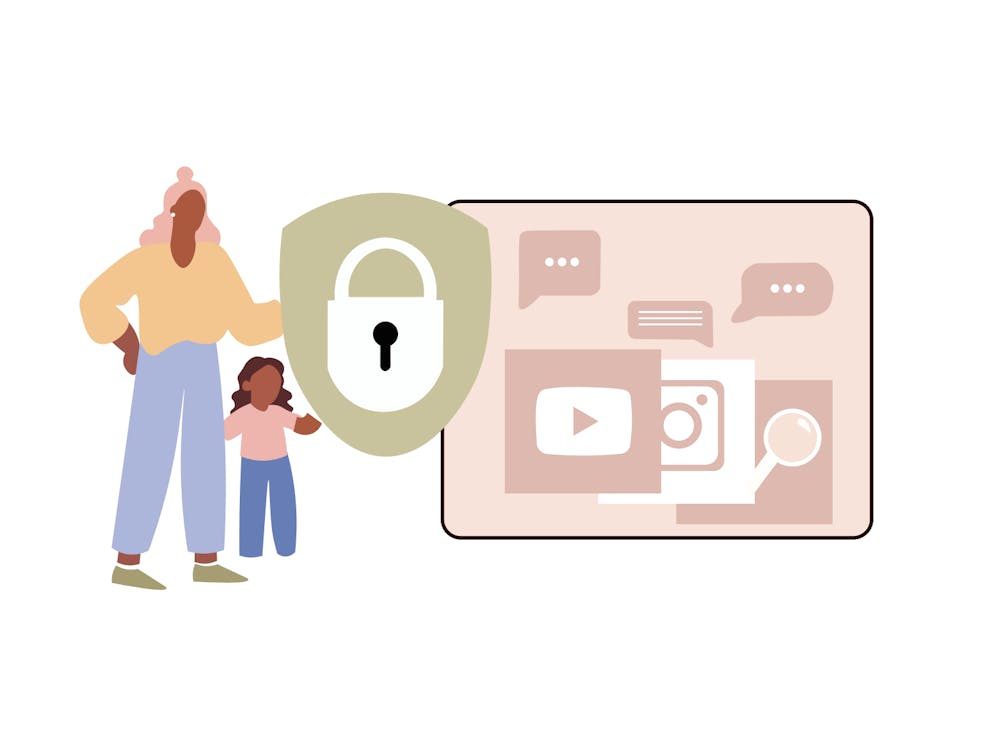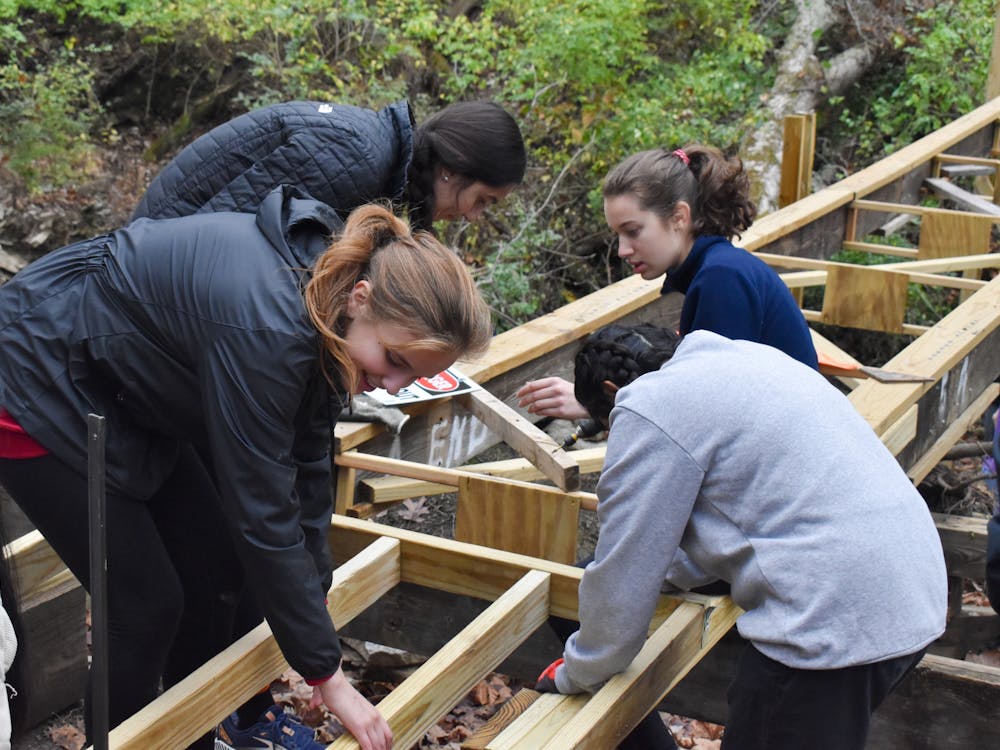The first movie was made in 1888. The first radio broadcast was aired in 1895. TV was invented in 1927. The internet? 1983.
The internet is only 42 years old, yet it has taken over our entire society.
My generation is often referred to as digital natives. We were born around the beginning of lots of modern technology, so we’re typically good at figuring it out. However, unlike the current generation of youth, my childhood didn’t revolve around the internet.
Sure, I understood how to use a phone or an iPad. I watched Disney Channel and Cartoon Network on TV and played dress-up games on my grandma’s computer in elementary school. I got my first phone in fifth grade and used it often.
But I spent a lot of time off my devices. I jumped on the trampoline with my neighbors in my backyard. I played with Monster High dolls and collected La La Loopsies. I stayed up past my bedtime hiding underneath a blanket with a flashlight to finish one more chapter of whatever book I was currently on.
If I was using a device, I was still socializing with someone. I’d be watching a movie with my grandma at a sleepover. I’d be playing video games like Wii Sports or Just Dance with my friends. Even if I had a device in my hand, my friends still had my attention.
The internet gives children easy access to all types of content, for better or worse. Social media platforms typically have safety features and parental controls, but they’re only useful if the parents actually utilize them. If a parent’s solution to their toddler’s temper tantrum is to shove an iPad in their hands, do you think they’ll check the content they’re watching?
As long as they’re not screaming and crying, right?
Our youth are not healthily consuming social media. They’re watching content from beauty influencers, and they feel convinced to buy anti-aging skin care products with harmful retinol at nine years old. They’re shown the best version of someone, and it’s not entirely realistic. They think they need the newest Stanley cup or lip gloss from Sephora, instead of the newest Barbie or Hot Wheels car.
The internet also grants parents the space to exploit their children for content and money, as seen with Ruby Franke and her family vlogging YouTube channel “8 Passengers,” and other channels.
“SevenSuperGirls,” an all-girl collaboration channel and one of my favorites when I was young, was about seven girls who’d post videos from morning routines to fictionalized stories about being a mermaid. Later on, co-owner Ian Rylett was arrested in 2018 on suspicion of child sexual abuse and later pled guilty.
Rylett had a set of rules the young girls had to follow. Most of them were about physical appearance, such as no makeup or crazy hair colors, but it eventually turned into no shaving legs, and even no bras. Rylett claimed that these rules were sent by sponsorships, who wanted the teens to appear younger than they were.
Enjoy what you're reading?
Signup for our newsletter
Kaelyn Wilkins, a former member, recently released a video explaining her experience on the channel. She explained how sponsorships were pulled from her at one point because she plucked five eyebrow hairs and had to send him photos to prove they were growing back.
I’m not blaming social media corporations for these issues. It’s impossible to monitor the content of every account. But I do believe that there are steps social media can take to make their platforms safer for kids. Instagram recently released a feature that forces users under 18 years old into “Teen Accounts.”
I encourage content creators to check their analytics every now and then, just to see if there are any young users they can weave out. Instagram does have a feature where creators can set an age requirement for their account.
But above all, I encourage parents to monitor how their children use technology and the internet. Parents need to take accountability for when they’ve fallen short. We need to stop normalizing giving our toddlers an iPad when they’re upset. We need to stop supporting family influencers who borderline exploit their children for content.
So much about the internet is still new territory, and I won’t act like it’s an easy fix. Kids who really want Instagram will find a way past the age requirement. But I think it’s important that we try harder to protect children. I don’t think social media corporations can solve the issue entirely on their own. Parents need to step up too.
Because right now, kids don’t know how to be kids without the internet.
Taylor Powers is a sophomore double majoring in journalism and media and communication. She is the assistant opinion editor for The Student and edits for The Miami Student Magazine. She’s also a PR chair for Miami Dance Corps.




